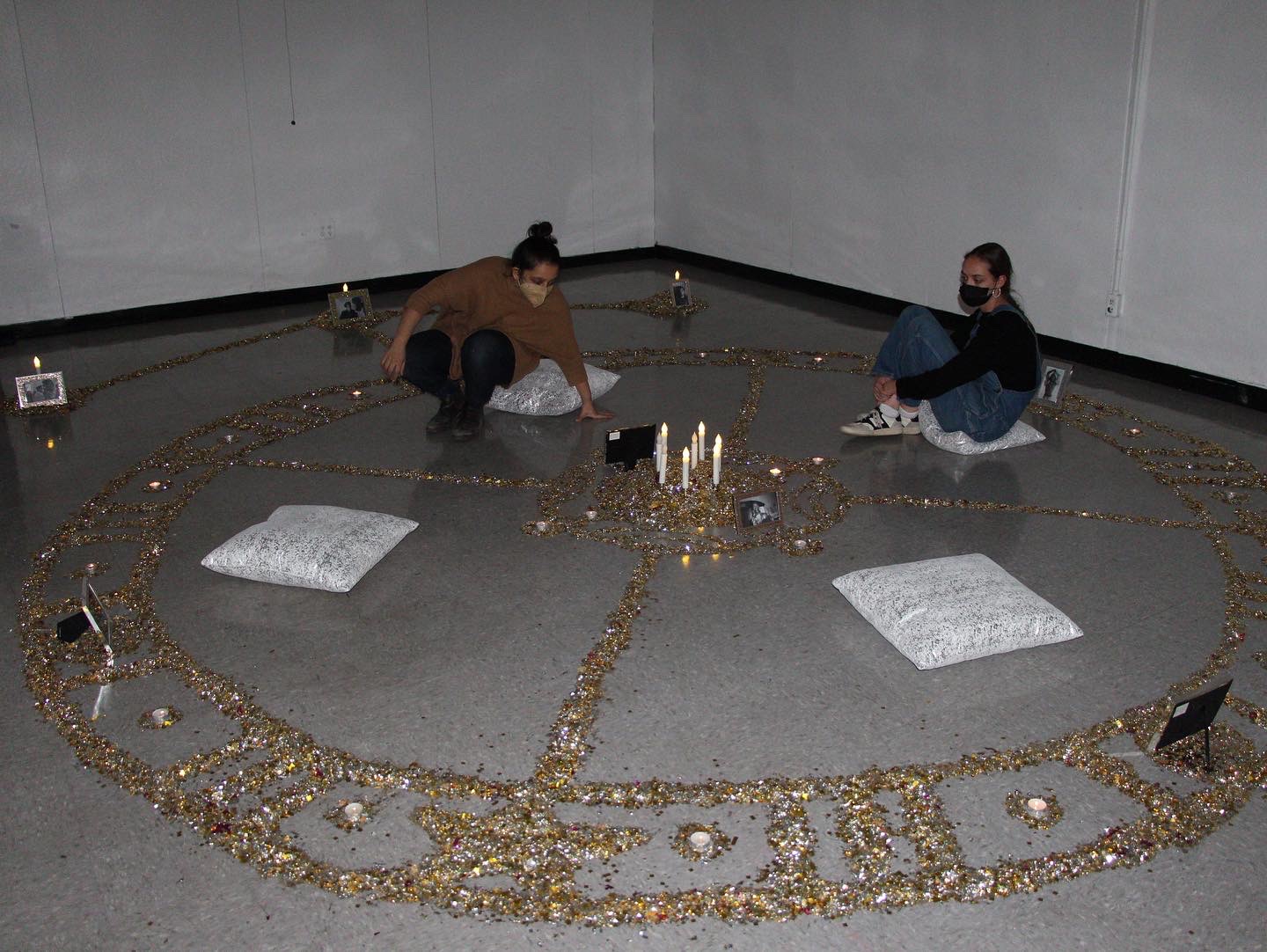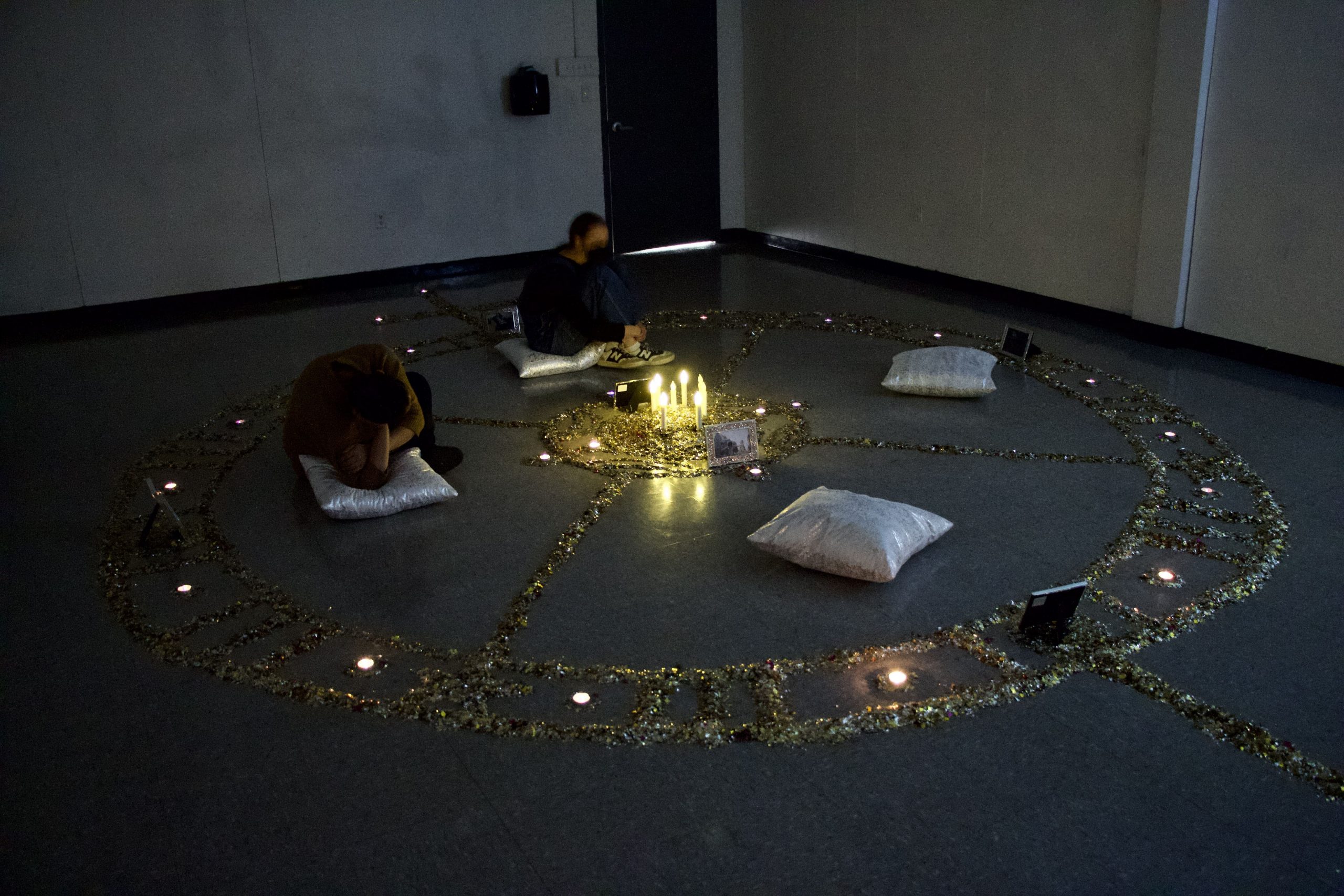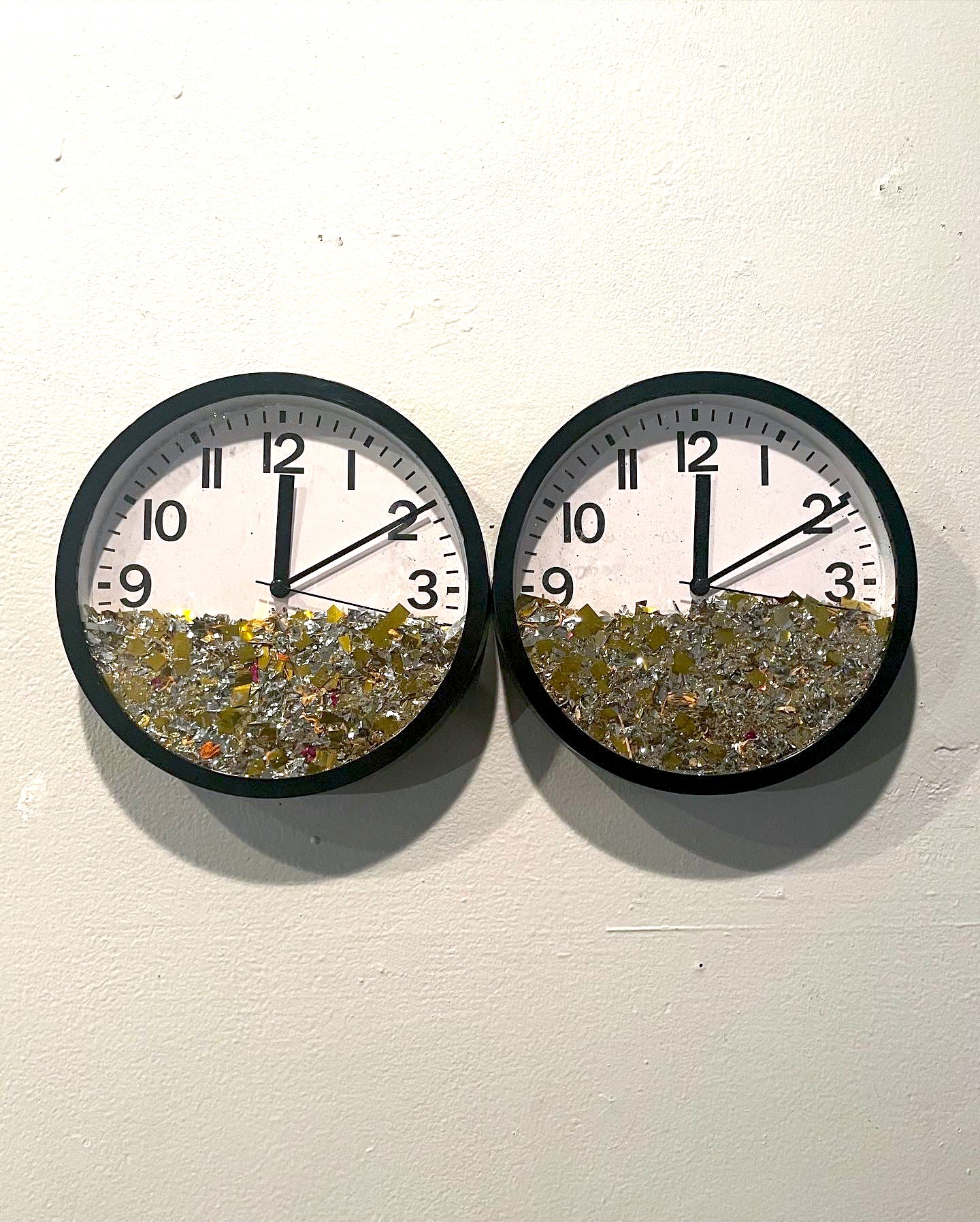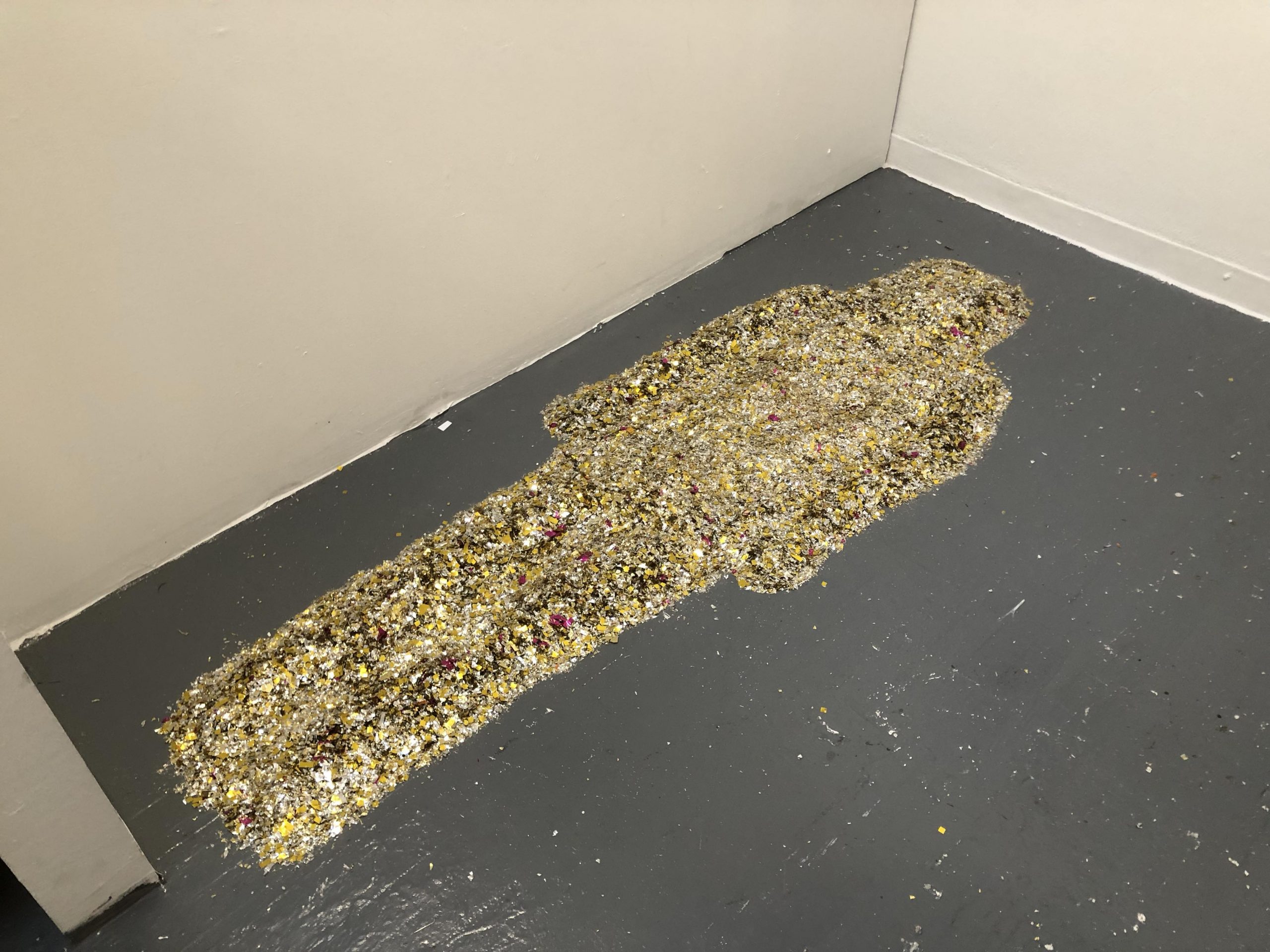ginoromero.com
ginoromero.art@gmail.com
@ginoromero.art
untitled (Altar Ancestral) [documentation], 2022, performance, glitter, cempasúchil, lavender, cinnamon, candles, photographs, sound 13:26
Artist Statement
Gino is a queer and trans first generation Venezuelan-American. Their work primarily deals with the decolonization of archives through community intervention and personal narrative. This body of work explores the Queer experience through a diasporic lens. Using aspects of rituals that are native to Venezuela in tandem with community archiving, they create a space for collective healing and memory. Oftentimes in archives, cultural materials are removed from all context, with this work, they create a living archive that is built for and by its users and contextualized within a cultural language of Queerness, spiritual practice, and historical ephemera.
As Queer people, we have often lived at the margins of society and have had to create our own culture and practices. Historically, Queer people have created space where there was none. During the 70s and 80s, we saw the proliferation of Queer culture, such as ballroom, Queer language, and even mourning rituals. I became particularly interested in Queer mourning rituals, as this suggested some kind of Queer practice or spirituality. Inspired by Ephemera as Evidence by José Esteban Muñoz, this body of work incorporates aspects of Venezuelan spiritual practice with Queer archival and mourning practices to imagine what a Queer centered practice can look like. How can we as Queer people honor our ancestors? How can we petition them for guidance? What does Queer as practice look like?
Gino Romero (b. 1997 in Miami, Florida) is a current MFA Fine Arts candidate at Parsons School of Design, has a BA in Studio Art from Florida State University, is an archivist, an educator, and considers growing up Queer and Trans in predominantly Latinx spaces as part of their education.
Romero’s practice is grounded in archival research, printmaking, bookmaking, installation, performance, ritual, and social practice. Their work is primarily concerned with the decolonization of archives through community intervention and personal narrative using aspects of practices stemming from their Queer + Venezuelan background. They are most interested in ways history has been recorded off of the written page. They consider this a way to communicate with their ancestors and as part of their Queer ancestral veneration practice.
Their work has been exhibited nationally at venues, including the Phyllis Strauss Gallery, Florida State University’s College of Medicine, Tally Zine Fest, Gallery 208, Museum of Fine Arts, Goddess Lounge, FL; Also Gallery, online; Wonderville, Grace Exhibition Space, SoMad Gallery, and Rosekill Art Farm, NY. They are the recipient of a full scholarship to Parsons School of Design. They were also a panelist and fellow at Creating Change Conference.



